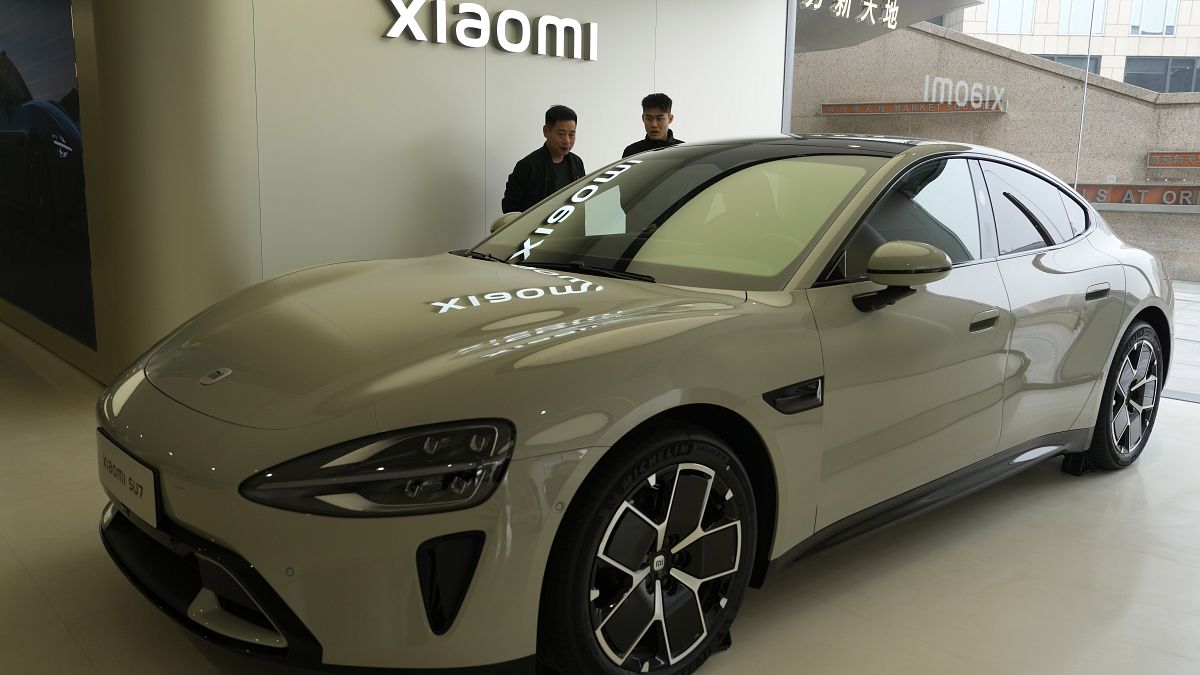The European Court of Auditors has strongly denied any political intent behind its decision to warn a looming ban on the sale of conventional petrol and diesel cars could lead to an influx of electric car imports from China.
In an unusual move, EU auditors have warned the EU’s industrial sovereignty is at risk if it sticks to a de facto 2035 ban on petrol and diesel cars without addressing its dependency on overseas suppliers for raw materials and batteries needed to produce electric vehicles.
Recent revision of CO2 standards for cars and vans sets the tailpipe emissions limit to zero from 2035, the end point of 15 years to date of increasingly stringent emissions standards. “Has this contributed to reducing vehicles’ real world emissions in line with the EU’s green ambitions?” asked ECA member Nikolaos Milionis.
“The answer is a resounding no,” the EU auditor said while, flanked by three of his colleagues, he briefed journalists via video link from Luxembourg today (22 April).
Skip Ad
Continue watchingafter the adVisit Advertiser websiteGO TO PAGE
PLAY  Latest
Latest
Video Settings
Full Screen
About ConnatixV475844 Read More
Read More Read More
Read More Read More
Read More Read More
Read More Read More
Read More Read More
Read More Read More
Read More Read More Beyoncé, flat earths, fast-fashion and angry men:What new words enter the French dictionary?
Read More Beyoncé, flat earths, fast-fashion and angry men:What new words enter the French dictionary? (new Image()).src = ‘https://capi.connatix.com/tr/si?token=604675c4-ea89-46c9-9817-5ed115e7bf41&cid=83b16131-8326-440c-9a78-470bcd2870e2’; cnxps.cmd.push(function () { cnxps({ playerId: “604675c4-ea89-46c9-9817-5ed115e7bf41” }).render(“29572e93412441b3b0dc992bd9167d8a”); });
(new Image()).src = ‘https://capi.connatix.com/tr/si?token=604675c4-ea89-46c9-9817-5ed115e7bf41&cid=83b16131-8326-440c-9a78-470bcd2870e2’; cnxps.cmd.push(function () { cnxps({ playerId: “604675c4-ea89-46c9-9817-5ed115e7bf41” }).render(“29572e93412441b3b0dc992bd9167d8a”); });
Auditors drew on the findings of reports published over the past three years: on electric car charging infrastructure, efforts to promote domestic battery manufacturing, trends in car CO2 emissions, and mostly recently, a critical assessment of potential biofuel production.
Milionis said the 2035 emissions standard, despite its being in theory technology neutral, would mean electric cars are the “only viable alternative”, despite claims that biofuels and so-called e-fuels produced using renewable electricity would allow the continued use of internal combustion engines.
Another member of the Court, Annemie Turtelboom, was unambiguous in stating that Europe’s green policy looked likely to backfire. “To put it bluntly, Europe is facing a conundrum,” Turtelboom said. “How can the green deal satisfy our climate objectives without harming our industrial policy, and increasing costs for European consumers.”
“Either you will not meet the target for 2035, or you will only meet it by importing cars from China and/or the US, but mainly actually China,” Turtelboom said, referring to the ECA’s report on batteries.
Reporters repeatedly asked the auditors why they had taken the unusual step of issuing such a warning, on a politically sensitive areas of EU policy, just weeks ahead of European Union elections, and with a backlash against the European green deal already part of the political debate. They denied there was any motive beyond drawing attention to potentially conflicting policy goals.
The timing was coincidental, the auditors asserted. “It’s like a synthesis presentation of four coherent issues,” Milionis said. The Luxembourg-based EU officials also denied when asked directly that they had held any recent discussions with figures from the automotive industry, whose lobbyists in Brussels have long argued that the EU was moving too fast in phasing out fossil fuel-powered cars.
Another ECA official, Alfonso De Castro Malheiro, said there was “clearly a case for the Commission to update its strategy on batteries”. He acknowledged a lot of work” by the Commission to strike trade partnerships with potential suppliers of critical raw materials.
But this has been the message “since at least 2008” Malheiro said. “And yet the reality is that we are still very much dependent on a limited number of countries.”
Turtelboom said 2026 would be a “pivotal year” – this is when, under the regulation on CO2 standards, the European Commission must assess progress towards meeting the 2035 target and, if necessary, consider adjusting it.
“The EU does not hold all the cards when it comes to electrifying its car fleet: access to raw materials, the costs to be borne by its industry and its citizens, and a lack of infrastructure could mean it loses its bet,” Turtelboom said separately, in a statement issued by the Court.














